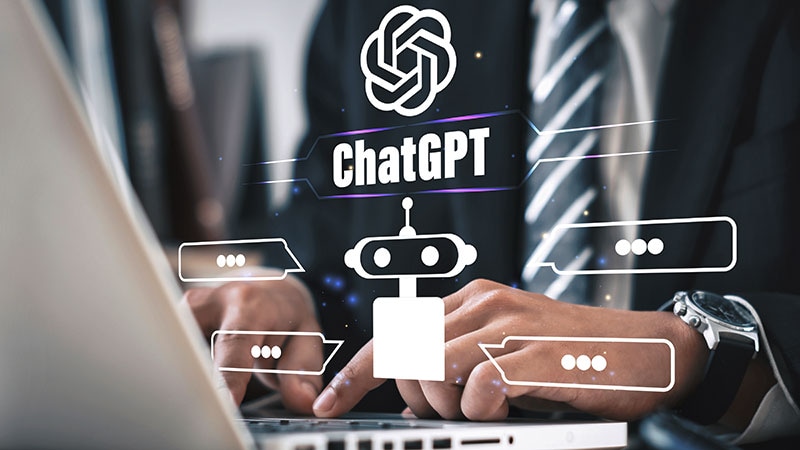Chatbots vs. Ophthalmologists: Accuracy Comparison
Core Concepts
Chatbots are as accurate as ophthalmologists in providing eye care advice.
Abstract
The study compared ChatGPT algorithm responses to human responses in ophthalmology advice. Ophthalmologists struggled to differentiate between bot and human answers. Chatbot responses were comparable in quality to human responses, with similar risks of incorrect or harmful information. Chatbot errors included occasional hallucinations, potentially causing harm. Previous studies showed varying results in chatbot accuracy in ophthalmology. Chatbots have the potential to streamline physician tasks and reduce workloads.
Chatbots as Accurate as Ophthalmologists in Giving Advice
Stats
The accuracy of distinguishing between chatbot and human responses was 61.3%.
The likelihood of incorrect or inappropriate material in chatbot answers was 77.4%.
Harm was unlikely in 86.5% of chatbot answers.
The level of potentially harmful information in chatbot responses was 12.6%.
Chatbot responses were preferred over physician responses in 78.6% of evaluations.
Quotes
"The fact that ophthalmologists were only able to distinguish between the chatbot and human responses correctly 61% of the time speaks to the accuracy of AI chatbot responses." - Riley Lyons, MD
"ChatGPT is not fully up to date and trained on the latest data available, and so that is where physicians have the upper hand." - Tina Felfeli, MD
Key Insights Distilled From
by Richard Mark... at www.medscape.com 08-25-2023
https://www.medscape.com/viewarticle/995856
Deeper Inquiries
How can chatbots be improved to limit hallucinations and ensure safety in medical applications?
To enhance the safety and accuracy of chatbots in medical applications, several improvements can be implemented. Firstly, increasing the training data with up-to-date and comprehensive medical information can help reduce the occurrence of hallucinations. Chatbots should be regularly updated with the latest research and guidelines to ensure the information provided is accurate. Additionally, implementing a robust validation process where responses are reviewed by medical professionals before being disseminated can help catch any potential errors or misinformation. Incorporating a feedback loop where users can report inaccuracies or questionable responses can also aid in improving the chatbot's performance and minimizing hallucinations. Furthermore, developing algorithms that prioritize evidence-based information and cross-referencing responses with reputable medical sources can further enhance the reliability and safety of chatbots in medical settings.
What ethical considerations should be taken into account when using AI in medicine?
When utilizing AI in medicine, several ethical considerations must be carefully addressed to ensure patient safety, privacy, and autonomy. One crucial aspect is transparency, where patients should be informed when they are interacting with a chatbot rather than a human healthcare provider. This transparency helps manage patient expectations and fosters trust in the technology. Additionally, data privacy and security are paramount, as AI systems often handle sensitive patient information. Implementing robust data protection measures, such as encryption and secure storage, is essential to safeguard patient data from breaches or misuse. Moreover, ensuring that AI algorithms are unbiased and do not perpetuate discrimination or disparities in healthcare delivery is critical. Regular audits and oversight by regulatory bodies can help monitor and mitigate any biases that may arise. Lastly, maintaining the human touch in healthcare is vital, and AI should complement rather than replace human healthcare professionals. Ethical guidelines should prioritize patient well-being and ensure that AI is used ethically and responsibly in medical practice.
How might the evolving field of chatbots impact the future roles of healthcare professionals?
The advancement of chatbots in healthcare is poised to transform the roles of healthcare professionals in various ways. Chatbots have the potential to streamline administrative tasks, such as scheduling appointments, managing medical records, and providing basic medical information to patients. This automation of routine tasks can free up healthcare professionals to focus more on direct patient care, enhancing the efficiency of healthcare delivery. Additionally, chatbots can serve as valuable tools for patient education and engagement, providing personalized health information and reminders to patients. Healthcare professionals can leverage chatbots to extend their reach and support patients in between appointments, improving overall patient outcomes. However, while chatbots can augment healthcare services, they are unlikely to replace the expertise and empathy of human healthcare providers. Healthcare professionals will still play a crucial role in complex decision-making, critical care situations, and building trustful relationships with patients. The future integration of chatbots in healthcare is likely to redefine the roles of healthcare professionals, emphasizing collaboration between humans and AI to deliver high-quality and patient-centered care.
0
More on Healthcare
